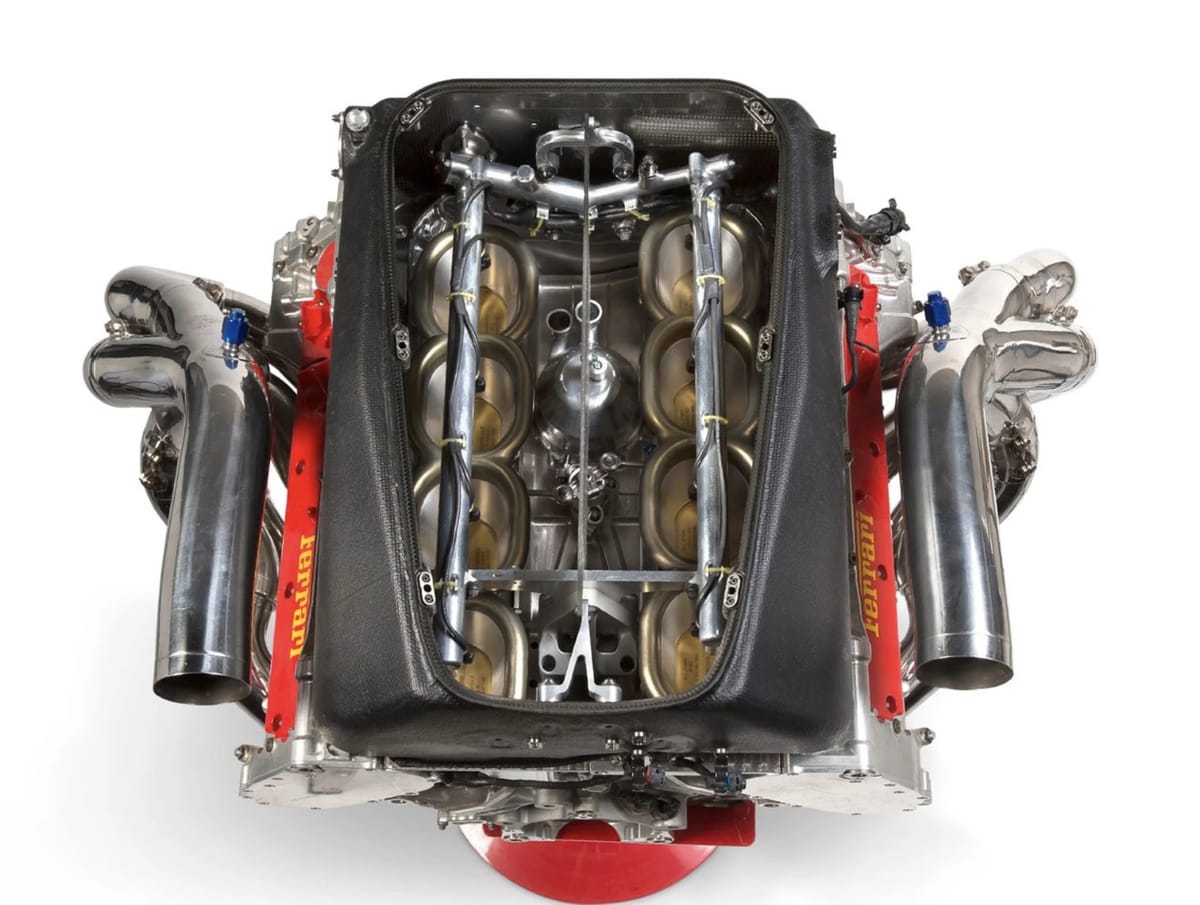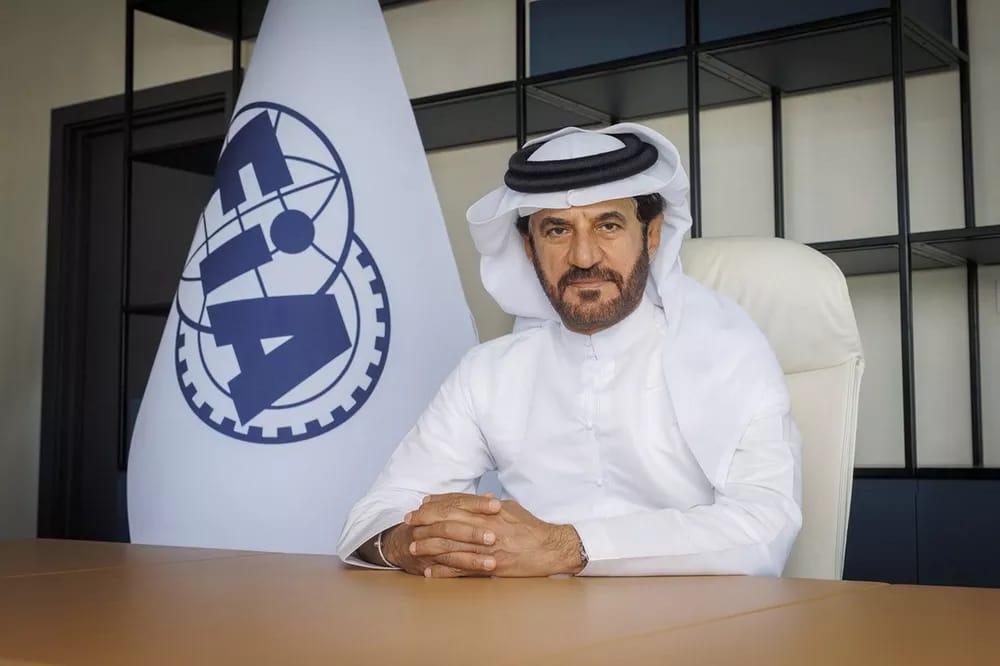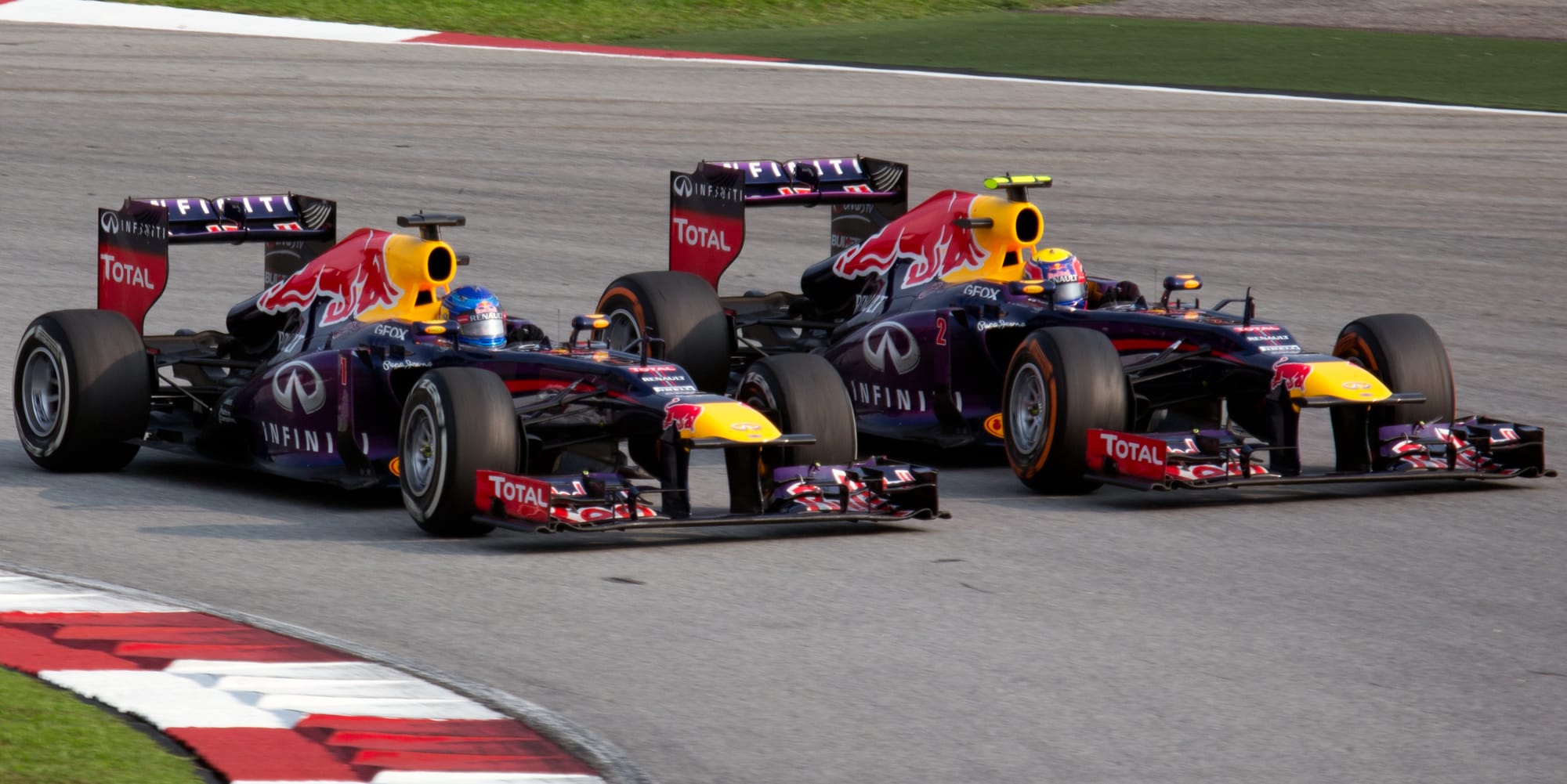NOT DEAD YET

Traditional V8 engines could be coming back to Formula One in 2029.
A new push for the old-school powerplants is being driven by the top man in global motorsport, FIA president Mohammed Ben Sulayem, even though his earlier idea for V10s from 2026 was rejected by teams and powerplant suppliers.
The keys to the new drive are cost reduction and better green credentials, as combustion V8s could lose their high-priced hybrid systems and also run on labratory-made eFuels.
"To us, the V8 is happening," Ben Sulayem told a group of journalists last weekend at the British Grand Prix.
"With the teams now, I'm very optimistic, happy about it. FOM [Formula One Management] are supportive, the teams are realising it is the right way."

The history of V8s in grand prix racing tracks back to Ferrari in the 1950s, although they were last used in contemporary F1 in 2013 before being replaced by hybrid-boosted turbocharged 1.6-litre V6 engines.
Ben Sulayem was pushing for the return of V10s earlier this year, and had some support, but the idea eventually died because of the short lead times for 2026 and the upcoming arrival of Audi, Cadillac and Ford in Formula One.
But he now believes there will be time and support for the engine swap.
"The current engine is so complicated, you have no idea, and it is costly. R&D is reaching $200 million ($A306m), and the engine is costing approximately $1.8m to $2.1m ($A1.8-3.2m), so if we go with a straight V8, let's see," he said.

"We need to do it soon. You need three years, so hopefully by 2029 we have something there, but the fuel is also very expensive, and we have to be very careful with that. Transmissions are very expensive."
The V8 drive would also restore the traditional howling engine sound to Formula One, even with some sort of minor hybridisation.
There has been no reaction yet from the engine suppliers in F1, but Ben Sulayem is confident he will get the backing to make the change happen and slash the price for the single most-costly component in a grand prix car.
"Many of the manufacturers produce V8s in their cars, so commercially it's correct. How much is it? The target is more than 50 percent [cheaper] in everything," he said.

